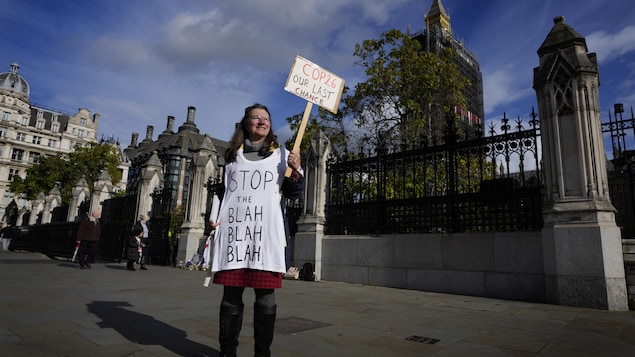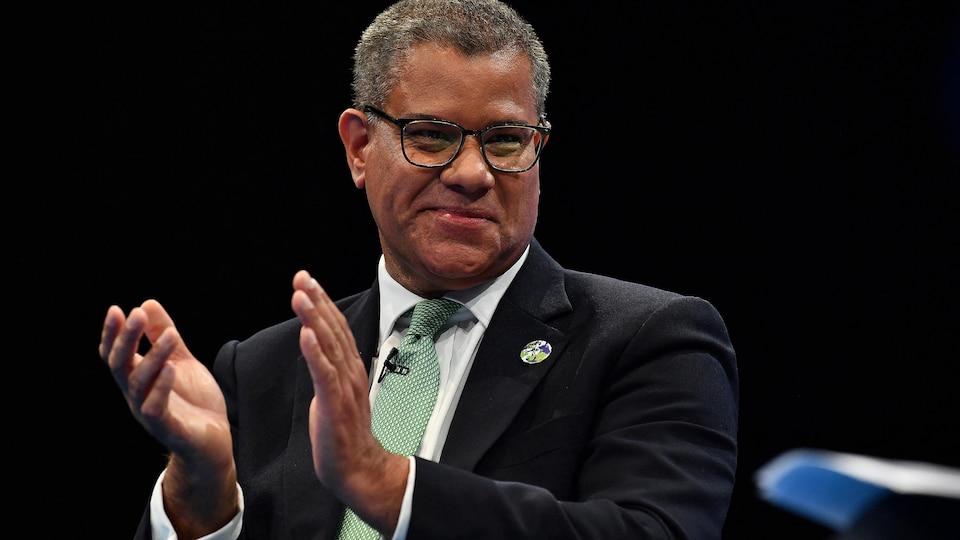At least those are the predictions shared by COP26 President Alok Sharma during a press conference held one week before the opening of this international climate conference, Sunday in the Scottish city of Glasgow.
Canadian and German Environment Ministers Jonathan Wilcoxon and Jochen Flasbarth, who were tasked last July to catalyze donations to ensure that goal is achieved, said they have seen significant progress. However, they acknowledged that more needs to be done.
The goal of raising US$100 billion (Canadian$123 billion at the current rate) was set at COP15, in Copenhagen, in 2009. There was talk of reaching it in 2020. However, the latest figures published by the Organization for Economic Co-operation and Development this summer showed The prize pool only reached $79.6 billion in 2019, an increase of 2% compared to 2018.
The projected figures for 2020 have not been released for what is officially called the Climate Finance Implementation Plan, but Messrs. Sharma, Wilcoxon, and Flasbarth all agreed that the target set would not be achieved.
Mr. Sharma admitted that this wassource of deep frustration
for developing countries. I totally understand this
, confirmed.
A comprehensive target, perhaps over five years
However, the target of raising US$100 billion annually for the period 2021-2025 was renewed at COP21 in Paris in 2015, and the three men noted that estimates currently made by the Organization for Economic Co-operation and Development indicate that US$500 billion could be raised within These five years.
However, it is expected that rich countries will not succeed in reaching the set threshold of $100 billion annually in 2021 and 2022, but will exceed it and even exceed it over the following three years. Between $113 billion and $117 billion could be raised in 2025, according to the two scenarios considered by the OECD.
what we did […], means raising the level of ambition on the part of donor countries, and demonstrating that this target will be reached, and even exceeded, in 2024 and 2025.
Minister Wilkinson commented.
Yes, there has certainly been some disappointment – there may still be some disappointment – but the report and the work that has been done is inspiring some optimism. We will fulfill our commitment that was not true three months ago when we saw the numbers for 2019.
The OECD projections take into account four distinct components: bilateral public finance, multilateral public finance earmarked for developed countries, climate-related export credits with public support, and government-mobilized private finance. Bilateral and multilateral public climate finance.
According to Wilkinson, private funding is not sufficiently contributing to the fund at present.
Overall, we mostly lacked $100 billion in mobilization because private sector mobilization was less than expected.
Minister Wilkinson said. In terms of public finance, the contribution of governments was not far from the commitments made.
To be clear, the private sector needs to redouble its efforts. More money should be raised
, he completed. In the end, the size of the problem is such a limit [les changements climatiques] To adapt to it, we will need to raise trillions of dollars for it, not just 100 billion.
Rich countries critics
According to the Director of the Center for Studies and Research Power Shift Africa, Mohamed Addo, developing countries will not be satisfied with this result, it is they who insisted on keeping the promises made. Only rich countries can not say mission accomplished
.
$100 billion in climate finance isn’t just a lifeline to poor and vulnerable communities who are on the front lines of a climate crisis they haven’t created. This is the minimum that rich countries must do to meet their commitments
says this longtime observer of climate conferences.
Poor countries will not be fooled and leaders of developed countries must put this money on the table for COP26 to succeed.
Teresa Anderson, climate policy coordinator for ActionAid International, says for her part it is critical that financial assistance from developed countries be provided in the form of grants, not loans, as is currently the case. Otherwise, poor countries will find it difficult to pay.
Mr Sharma said he agreed with that approach, but without committing to what would be negotiated in Glasgow. He admitted that about 70% of the payments for 2019 were actually loans.
The COP 26 President also emphasized that discussions in early November should focus on how to distribute assistance to mitigate and adapt to climate change. At the moment, the majority of the prize pool should be spent on achieving the first goal, not the second goal.

“Extreme twitteraholic. Passionate travel nerd. Hardcore zombie trailblazer. Web fanatic. Evil bacon geek.”



